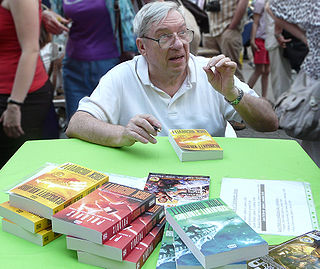A Quote by David Brin
Writing can be taken up at any point. But you need to remember that the arts are fundamentally unfair. Hard work and diligence won't necessarily take you all the way. Talent, nepotism, influence, and pure luck play a huge part.
Related Quotes
I can work a lot faster when I'm writing a screenplay than when I'm writing a play because, if I'm having a problem with a scene or something, I can just be writing it in a way where there's no dialogue, or find a way to make sound do the work that I want to do or a close-up do the work that I need to do.
For me upward social mobility is possible through talent and hard work and is a glowing endorsement of the benefits of living in a modern capitalist society. It's not so much evidence of a meritocracy, as evidence of healthy nepotism. Nepotism is at the core of a good group dynamic. A good group dynamic is at the core of rock'n'roll.
I'm a natural piano player. So all the practicing I do at this point is in my head. If I don't play for a year, my chops aren't going to get any worse. I've spent my time playing scales, and I don't necessarily want to play any faster than I play. So everything I do at this point is more philosophical.



































